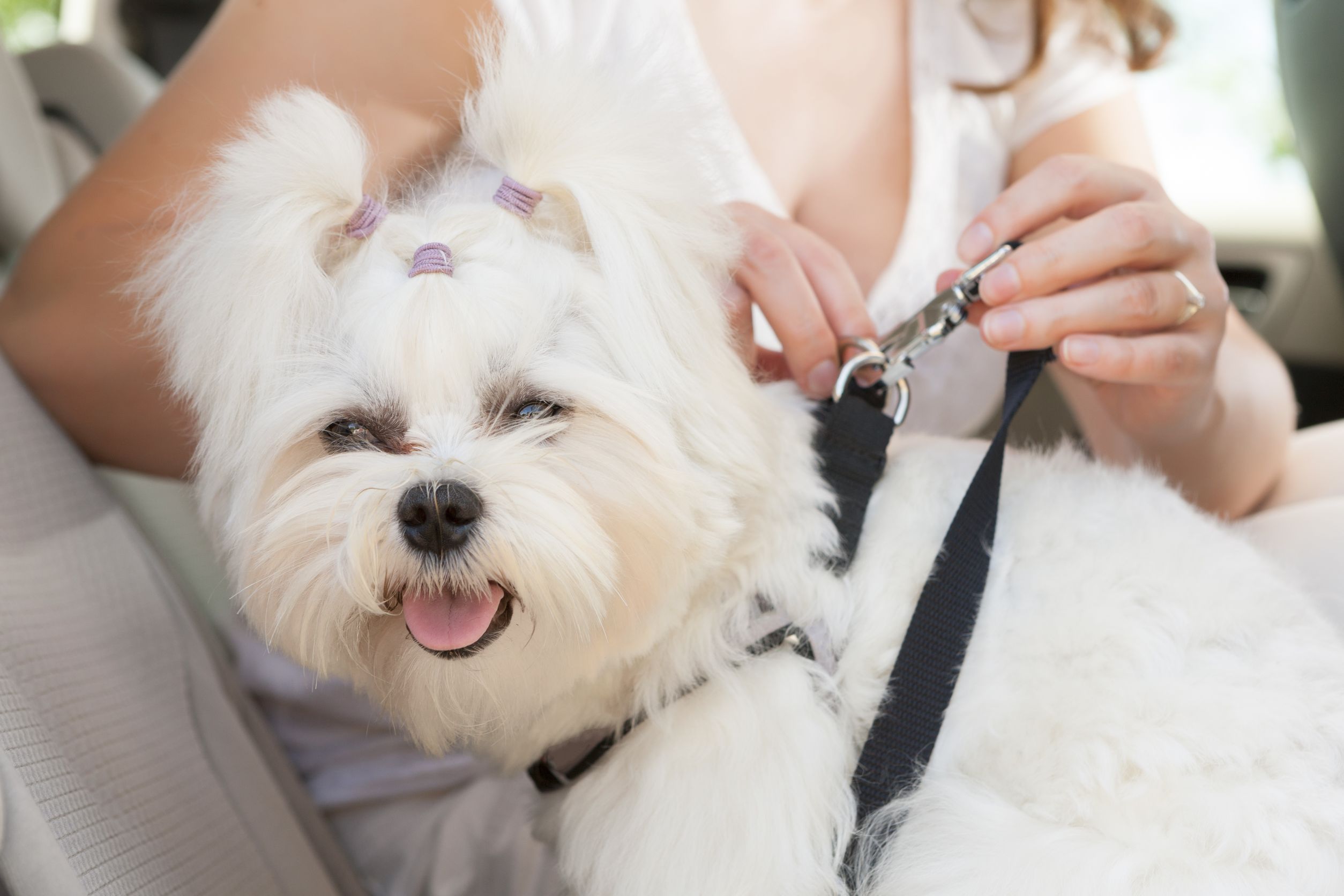Children aside, your pet is probably the most precious piece of cargo you will be taking on your cross-country relocation. Our furry friends are a part of the family, so it is up to us to make sure the cross-country move is as safe and easy for them as possible. You can move pets across the country can be done by car or plane, and some agencies specialize in pet moving services. However, since most people choose to move their pets themselves, and often by car, we gathered some advice on how to make your pet’s road trip as safe, comfortable and stress-free as can be.
1. Stop at the vet
Schedule an appointment at the vet to do a check-up and make sure your pet’s vaccinations are up to date. While you’re there, be sure to get all your pet’s health documentation and records and inquire about sedation. Most veterinarians do not recommend sedating pets for travel purposes. However, each pet has individual needs, and it is best to get an expert opinion. Ask your vet if they can recommend a colleague in the city to which you are relocating.
2. Food supply
Make sure you have a sizeable stock of your pet’s favorite food and snacks. Some brands are harder to find in different parts of the country, and trying out new choices of food while traveling or adjusting to a new locale is not a good idea. Pack meal size portions of dry food in small bags for the road trip, and have some snacks at the ready.
3. Healthcare on the go
Care for your pet’s health by preparing a Pet First Aid kit, stocked with some gauze, cotton wool and rubbing alcohol, Benadryl for allergies, tweezers for tick removal and disposable gloves. If your pet has needed certain medication in the past for a problem that is likely to revisit, make sure to have a ready stock and a prescription at hand. Have some phone numbers of emergency clinics along the routes you will be taking, just in case you need them.
4. Nametag, chip & leash
Many pets get lost while traveling. To prevent that from happening use a harness or collar and leash whenever you take your pet out of the car. A name tag and microchip are your best chance of having your pet returned to you in case you lose them.
5. Map out your trip
Plan your journey with as many breaks as necessary, taking into consideration that your pet will need a break every 3-4 hours. Find pet-friendly hotels along the way where your pet can relax, play and unwind from the stress of travel.
6. Practice
Practice car travel before you take to the road. Keep in mind the main reason your pet has ridden in the car up to now is to go to the vet (this is especially true for cats), so they might be reluctant to go and stressed out even before you start the engine. Take a few laid back drives with your pet to help them get used to car travel that doesn’t end up with them getting poked and prodded at the vets.
7. Safety first!
For their own safety, all pets should be safely restrained or kept in their carrier while the vehicle is in motion. A roaming pet can distract the driver and is more prone to injury in case of a collision. The back seat is the safest place for your pet, in a comfortable carrier and secured by a seat belt or other restraint. And speaking of safety, NEVER leave your pet alone in the car! Temperatures can rise more quickly than you think, posing a serious danger to your pet.
8. Get a good carrier
Invest in a good, sturdy and comfortable carrier. Make sure it fits securely in your car and if possible situate it where your pet can see you. A familiar blanket in the carrier or around it can help alleviate your pet’s nervousness.
9. Avoid yucky accidents
Nervousness and motion sickness is easier to deal with on an empty stomach. This is why veterinarians advise feeding your pet 3-4 prior to leaving. And don’t feed it in the car while it is moving! A funny-smelling mess is the last thing you want to be dealing with on any road trip, and especially this one.
10. Look into the legal aspect
Different states and cities have different laws and ordinances regarding pets, so make sure to get all the information you need ahead of time and gather the necessary documentation. You might want to consult an insurance professional about relocating your pet, depending on where you are relocating to.
And one last thing – try to keep the playlist on the mellow side. As much as you may enjoy blasting AC/DC all the way to your new home, your pets would appreciate a calmer choice of music.
For more cross country moving tip, check out this blog post from Unpakt.








